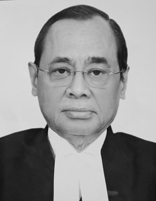
Meet Justice Ranjan Gogoi and his Notable Judicial decisions
Justice Ranjan Gogoi served as the 46th Chief Justice of India from October 3, 2018, to November 17, 2019. Born in Assam in 1954, he began his legal practice at the Gauhati High Court and rose through the judiciary to become a Supreme Court judge in 2012. His tenure as CJI was marked by boldness, a focus on judicial efficiency, and several landmark and high-profile decisions that have left a lasting imprint on Indian law and governance.
Judicial Career and Philosophy
Justice Gogoi was known for his no-nonsense approach, fearlessness, and commitment to judicial independence. He prioritized clearing case backlogs and improving judicial infrastructure, recommending the appointment of additional judges and advocating for raising the retirement age of High Court judges. He also established the Centre for Research and Planning to strengthen the Supreme Court’s knowledge infrastructure.
Landmark Judgments
1. Ayodhya Land Dispute Case (2019)
Justice Gogoi headed the five-judge bench that delivered the historic unanimous verdict in the Ayodhya land dispute, awarding the disputed site to the Hindu parties for the construction of a Ram temple and directing that an alternative site be provided to the Sunni Waqf Board for a mosque. This judgment resolved a decades-old, highly sensitive religious conflict.
2. National Register of Citizens (NRC) for Assam
He closely monitored and ensured the completion of the NRC exercise in Assam, aimed at identifying illegal immigrants. Despite controversies and political challenges, Gogoi stood firm on the need for the NRC process to be transparent and timely.
3. Rafale Fighter Jet Deal
Justice Gogoi led the bench that gave the government a clean chit in the controversial Rafale fighter jet procurement case, dismissing pleas for a probe and review petitions, and emphasizing judicial restraint in matters of national security and defense contracts.
4. Right to Information and Judiciary
He presided over the bench that held the office of the Chief Justice of India to be a “public authority” under the Right to Information Act, subject to reasonable restrictions to protect judicial independence and confidentiality.
5. Tribunal Appointments and Finance Act
A five-judge bench headed by Justice Gogoi struck down the rules formulated by the Centre on the appointment and service conditions for tribunal members, referring the larger issue of the Finance Act 2017’s validity as a Money Bill to a bigger bench.
Legacy
Justice Ranjan Gogoi’s tenure is remembered for landmark rulings on religious disputes, transparency, and judicial accountability. He was also instrumental in reforms to reduce judicial pendency and improve court functioning. His post-retirement nomination to the Rajya Sabha was unprecedented and controversial, sparking debate on judicial independence and the separation of powers.












comments